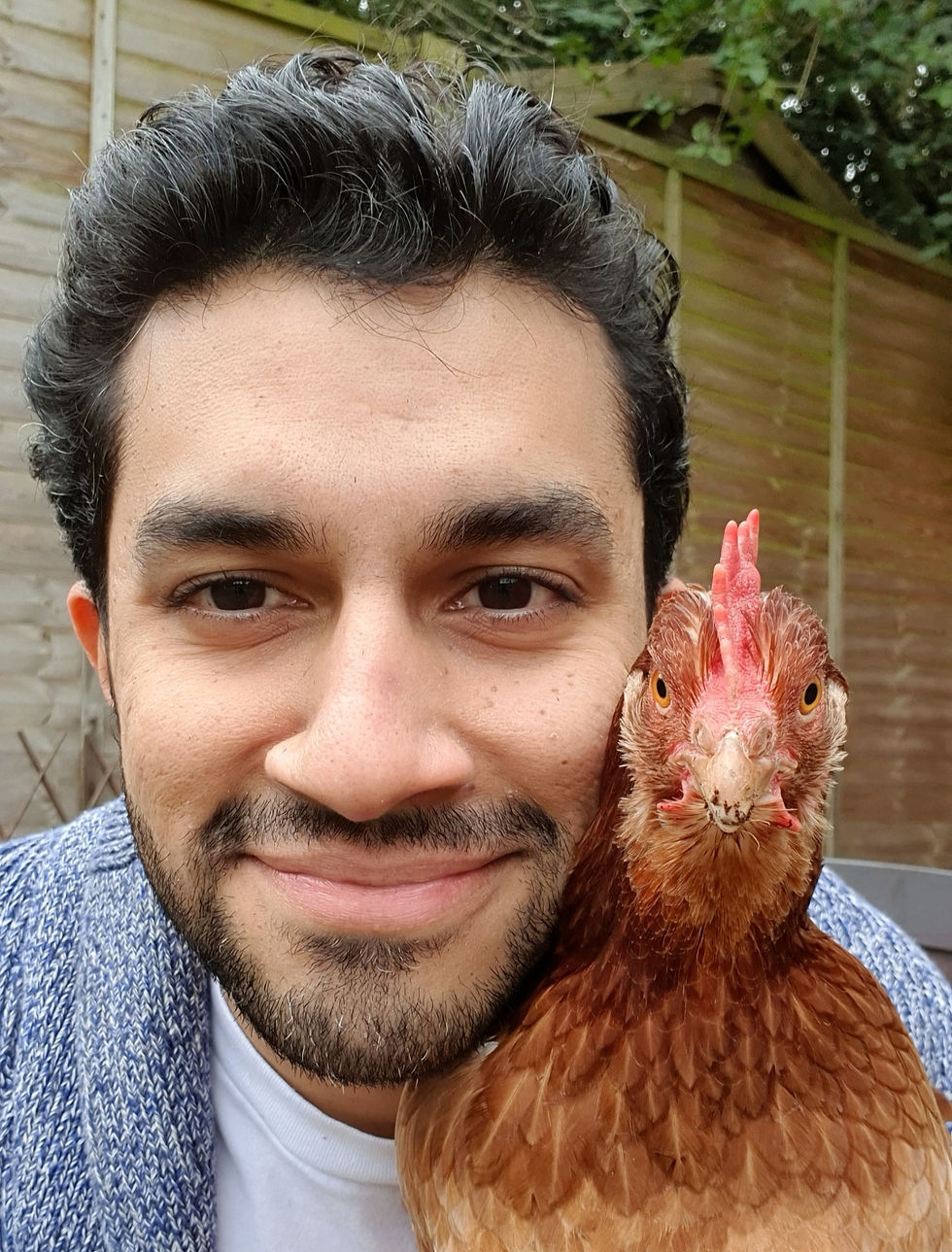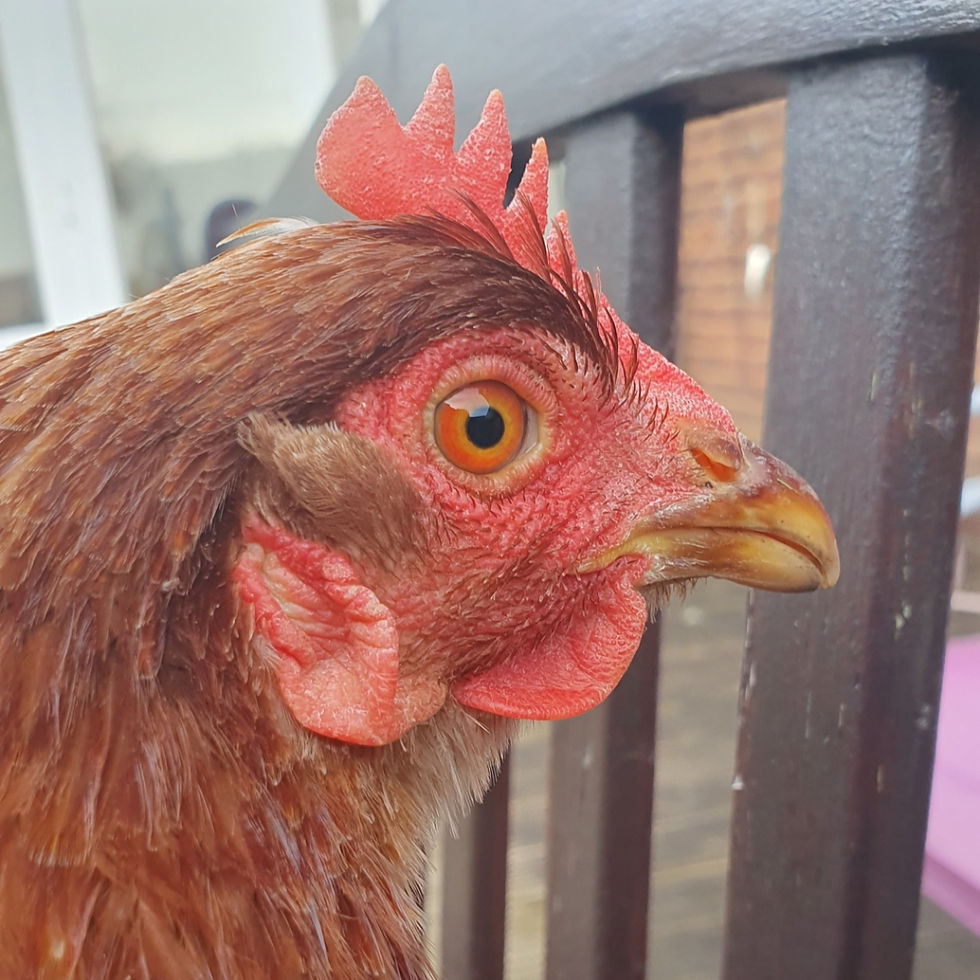What to do with 'backyard eggs'?
- kevalashah
- Sep 7, 2025
- 2 min read
13 years ago, we adopted our first group of four avians (hens), who were lucky enough to be rescued from an egg farm. Battered, bruised and emotionally-broken, they eventually found their joy after a few weeks of food, water, shelter and love. The one thing that remained constant was their laying - from day 1, each one of them was laying an egg a day.

Being vegan and having been put off eggs after witnessing what babies and mothers are subjected to within the egg industry, together with realising what they truly were (unfertilised ova being discarded by a female - similar to human periods), we had no desire to consume them. Instead, I used to gather them weekly, and take them to a nearby park for other sentient beings to have, when they came across them.

However, a few months later, I discovered that many vegan avian-adopters broke the egg-shells for the laying females to consume - as a way of recycling the significant amounts of protein and calcium lost from their bodies with each lay. This seemed like a perfect solution until we lost Rani.
Rani was the alpha of the order - calm, protective and leading the way. One day, we found her with her head down, looking incredibly sad and in pain. Upon calling the vet, we discovered that she may be egg-bound - a common condition amongst avians who are manipulated to lay an egg every day, as opposed to once a month which would be the case in the wild. However much she tried, she could not pass the egg out. We soaked her in a warm bath, massaged her - did everything to comfort her - but to no avail. Three days later, after not eating at all, she passed away, with her belly physically inflamed. She was diagnosed to have egg-bound peritonitis - infection of the body cavity resulting from the egg breaking inside of her.
We consulted with the vet about the matter, clarifying that we could not go through this torment of losing another one through this condition again. Thankfully, she knew what to do. She suggested giving them an implant that would stop the ovulation - a small release device inserted in the neck, and commonly given to rescued avians. The egg industry has routinely manipulated avians, genetically and hormonally, to push their bodies to produce far more eggs than what they can cope with. At the age of 18 months, many fail to lay on a daily basis. Deemed no longer profitable for their exploiters, the industry murders all of them at this age, when bodies and minds start giving up after a lifetime of enslavement, torture and utter deprivation from their natural behaviours.
In hindsight, we could’ve saved Rani’s life. When a similar issue happened with Sai, we took her to the vet on the first day. And after a couple of hormone injections, she managed to pass out the rubbery-shelled egg.

So, in summary, the best thing to prolong the life of an avian rescued from an egg-farm, is to have her implanted. If this is not financially possible, then the second best action would be to return her eggs to her, so that she can replenish her lost nutrients.




Comments